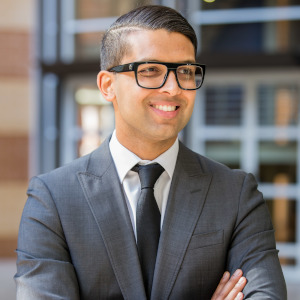No, not in that way, writes Jerome Doraisamy.

One of the key catalysts for my breakdown in late 2011 a was lack of sleep.
Ultimately, it wasn’t sustainable. Looking back, I’m not sure how I ever survived so long without proper sleep.
Cumulative fatigue wasn’t my only problem; such negligent self-care meant I wasn’t able to function effectively or be as productive as I would have wanted to be. As a result, my stress and anxiety levels were elevated to the extent that, upon realisation that I had depression, my sense of self was detached entirely from what I would have deemed normal or healthy.
I’m not the only one who has ignored the base need to be in bed. In the globally dependent and technologically advanced age in which we live, sleep deprivation – even incremental – is widespread, particularly in a professional services environment such as law.
Research is clear about the dangers of denying yourself sleep; in addition to tiredness, one can experience impaired cognitive functioning, difficulty concentrating and retaining information, moodiness, issues with social interaction, poorer decision-making capacities, and – in some cases – cardiovascular problems and weight gain. It can also have a significant detrimental impact upon your mental health.
None of these effects are conducive with good lawyering.
Lawyers and law students may sometimes feel as though they are unable to get sufficient sleep because there is too much work or study to complete and never enough hours in which to complete it. It’s a feeling I’m very familiar with.
But, getting good sleep in 2017 does not reduce my scope for productivity or capacity to complete tasks. If anything, it boosts my ability to be successful at work, as it would have done for me while I was a student.
Prioritising sleep, and ensuring I get enough of it, has improved my physical and mental health over the past five years, and has allowed me to perform exponentially better than I ever could at law school.
It can be hard to just uproot your regular schedule and allow yourself an extra hour or two of sleep every night, especially if you’re behind on popular Netflix shows. But there are a number of small, simple things you can do to have longer, better sleep:
• Turn off your devices at least an hour before bed.
Nothing makes me toss and turn in bed more than the strain on my eyes and brain from having stared at a screen for prolonged periods right before turning off the lights. Give yourself time to properly unwind from technology so as to be physically and psychologically prepared for sleep.
• Find a mindful activity that allows you to switch off from the daily grind.
In order to unwind, I read books and, recently, have discovered adult colouring. These things help me detach and focus on personal nourishment and growth. Podcasts, classical music or newspapers can also be beneficial.
• Be kind to yourself. You are, first and foremost, a person.
You have base needs and desires, and sleep is central to achieving that. Give yourself the time and space to rejuvenate your body, mind and spirit, so your batteries are recharged and you can hit the ground running the following day.
Since my breakdown in 2011, sleep has been a non-negotiable aspect of my timetable. I always get at least seven or eight hours’ rest, and occasionally aim for nine when needed.
I’m happier and healthier for it and, as a result, I’m also a better legal professional. Instead of slaving away late at night trying to be the best I can be, I’m sleeping my way to the top and waking up refreshed, energised and motivated to achieve my goals.
Good lawyering requires that you do the same thing.

Jerome Doraisamy is a speaker, consultant and author of The Wellness Doctrines.

Emma Musgrave (née Ryan) is the managing editor, professional services at Momentum Media.
Emma has worked for Momentum Media since 2015, including five years spent as the editor of the company's legal brand - Lawyers Weekly. Throughout her time at Momentum, she has been responsible for breaking some of the biggest stories in corporate Australia. In addition, she has produced exclusive multimedia and event content related to the company's respective brands and audiences.
Prior to joining Momentum Media, Emma worked in breakfast radio, delivering news to the Central West region of NSW, before taking on a radio journalist role at Southern Cross Austereo, based in Townsville, North Queensland.
She holds a Bachelor of Communications (Journalism) degree from Charles Sturt University.
Email Emma on: